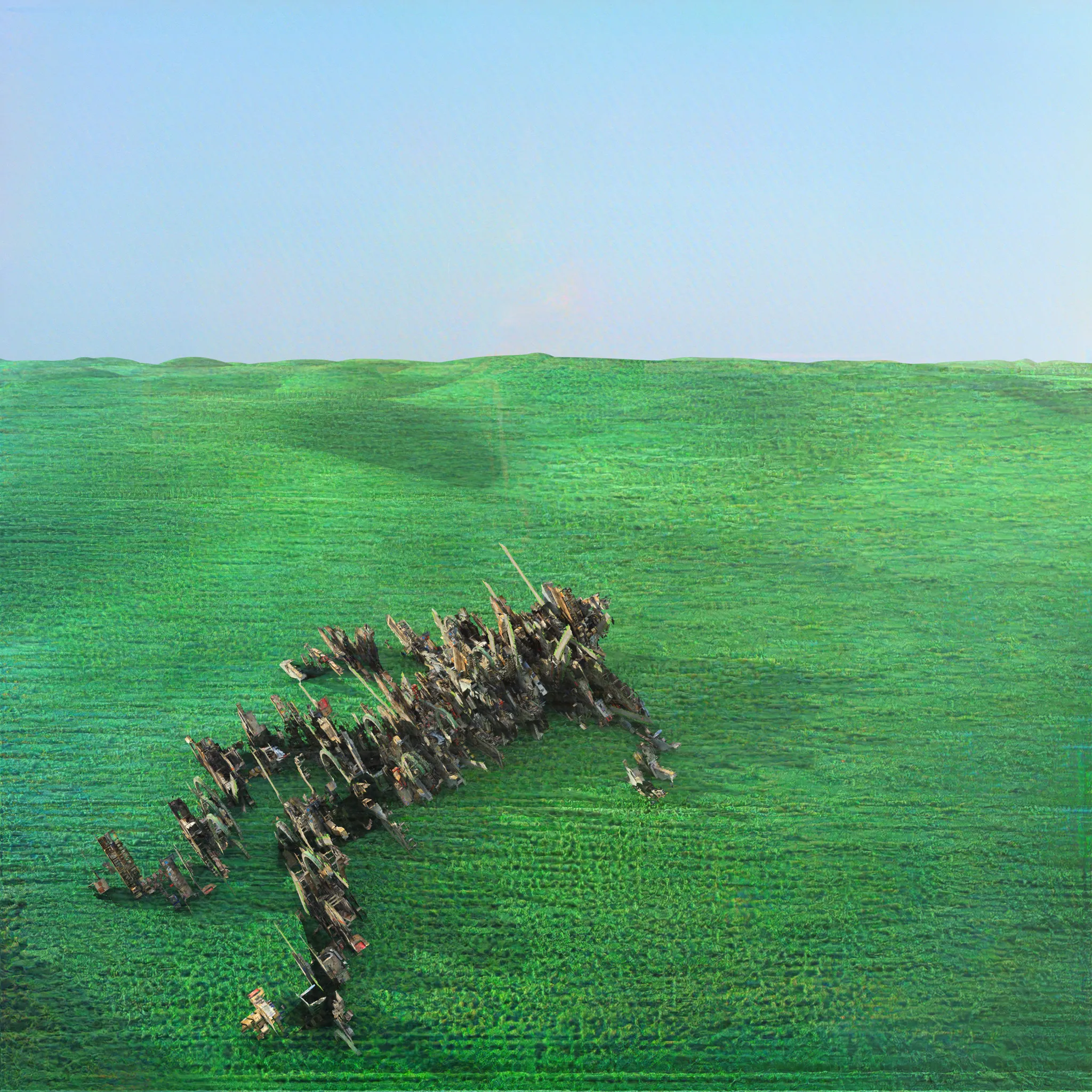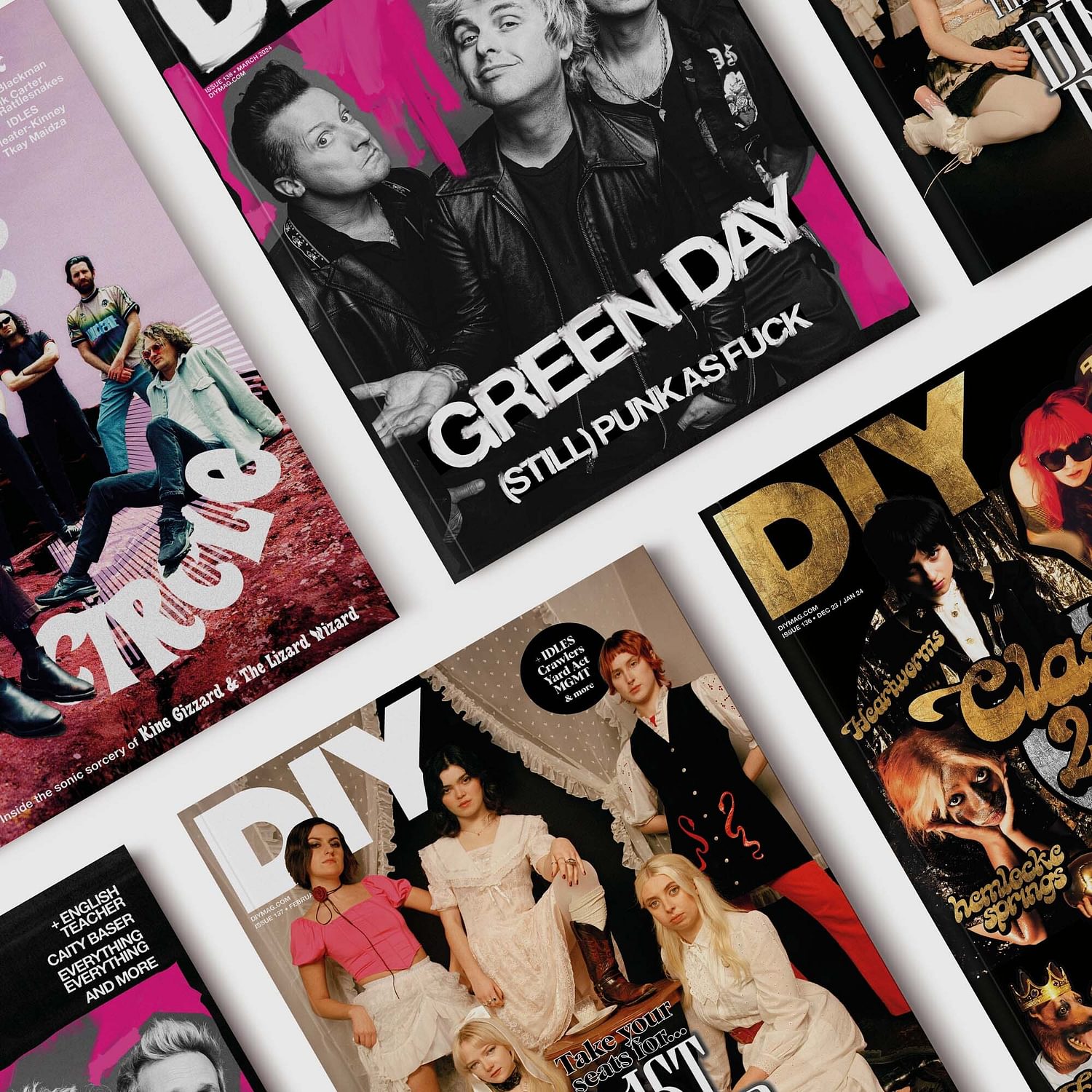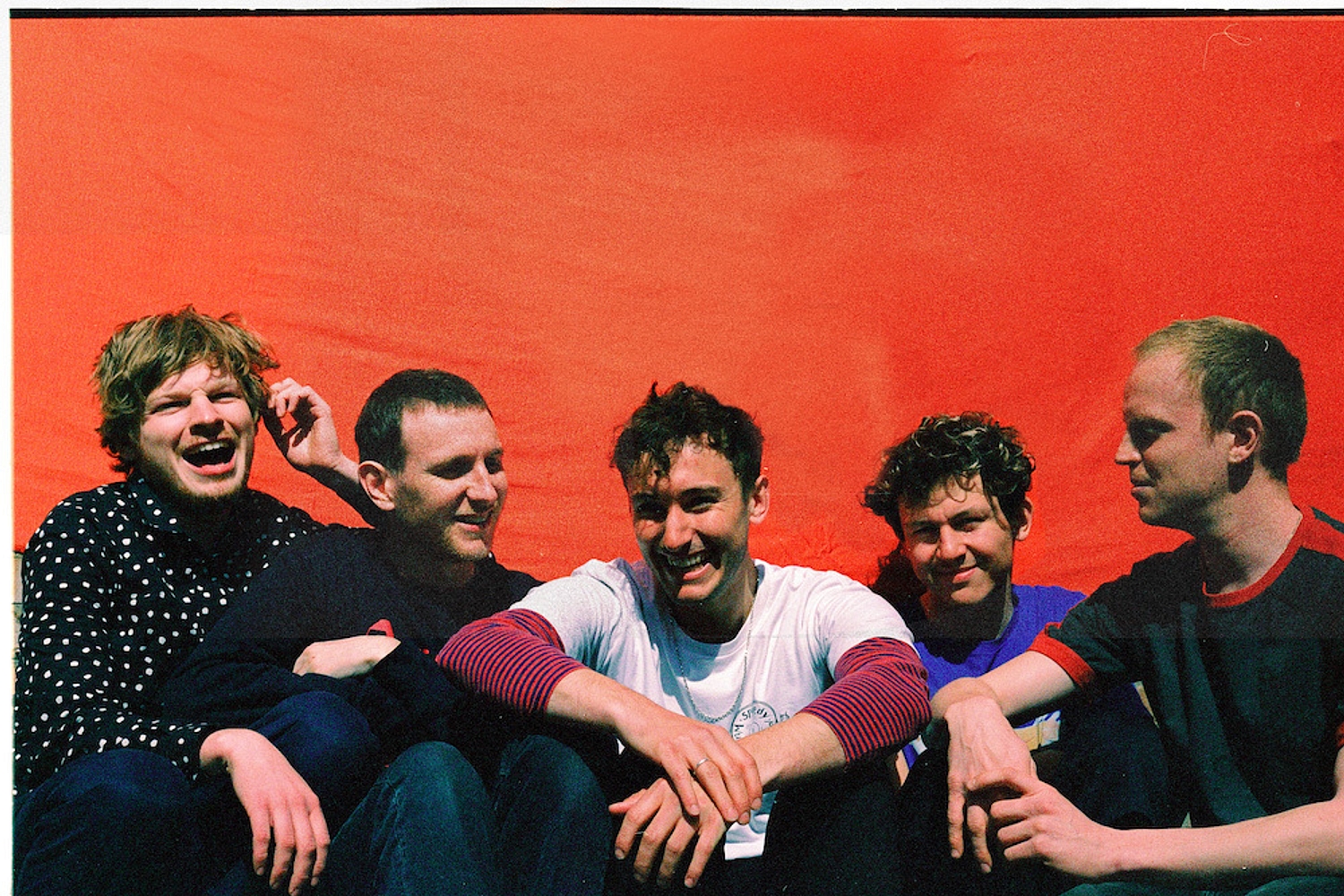
Interview A Brave New World: Squid
From domestic ‘Houseplants’ to AI technology and musings on future dystopias, Squid’s journey to debut ‘Bright Green Field’ has been a forward-facing odyssey.
With a reputation built on infallible, visceral live performances, the notion that Squid would spend an enforced year off-stage seems a particularly unjust one. It was the same month the Bristol five-piece signed to Warp - one of the biggest dance labels in the country - that the world came to a standstill. No wonder, then, that there’s such a deep sense of foreboding across their titanic post-rock debut.
A year on, the band are caught up in London with a hectic week of promo (including recording a live-to-vinyl release for this year’s Record Store Day) ahead of them. But the world evidently still feels an enduringly strange place to the quintet. “If you turn your head a bit, you can see Canary Wharf looming over the skyline,” observes guitarist-vocalist Louis Borlase with a distrustful tone, from a room above a Ladbrokes in Stepney Green.
It’s an apt scenario, given the world-weary character of this month’s much-anticipated LP ‘Bright Green Field’. Forgive the idyllic title - this is a waking nightmare of noise and experimentation, laced with dystopian themes and futuristic technologies. The bookies downstairs may have only just reopened, but we’d bet there are few records more fitting of the post-pandemic era.
The first album experience, it turns out, belied the band’s expectations in more ways than one. Fans enamoured with the cultured intricacies of their live show might have anticipated anything (a minimalist percussion ensemble in a toilet factory? A Frank Zappa acid trip down the Ganges?). But it was a scene from a pretty bog-standard crime drama - something more befitting of Squid’s humble origins in a Brighton bedroom - that shaped their vision initially.
“I remember watching CSI as a kid,” says keyboardist Arthur Leadbetter, gesticulating excitedly. “To solve the crime they had to get a guy in a music studio to tell whether someone’s voice in a recording was really them.” “They came into this studio and he was sitting at a mixing desk listening to [soul singer] Bill Withers, and he swivels around in his chair, like, ‘Yeah, that guy is a legend’. And I just remember thinking at that moment: I want to work in a studio like THAT.”
Drummer-vocalist Ollie Judge felt similarly misled when his escapist fantasy didn’t come to fruition for their own recording experience: “I was expecting it to be more like the episode of Peep Show where they go into the studio to do the Honda advert.” But what the band ended up with was, in many ways, something far more conducive to the restrictions of the present day. Instead of glitz and TV glamour, they decamped to lauded Speedy Wunderground producer Dan Carey’s heatwave-afflicted studio-dungeon in London, to shelter from the spiralling pandemic that loomed outside. “It never quite lived up to it,” concludes Arthur of his CSI daydreams. “But I’m not sure if Dan’s ever worked on a case like that.”
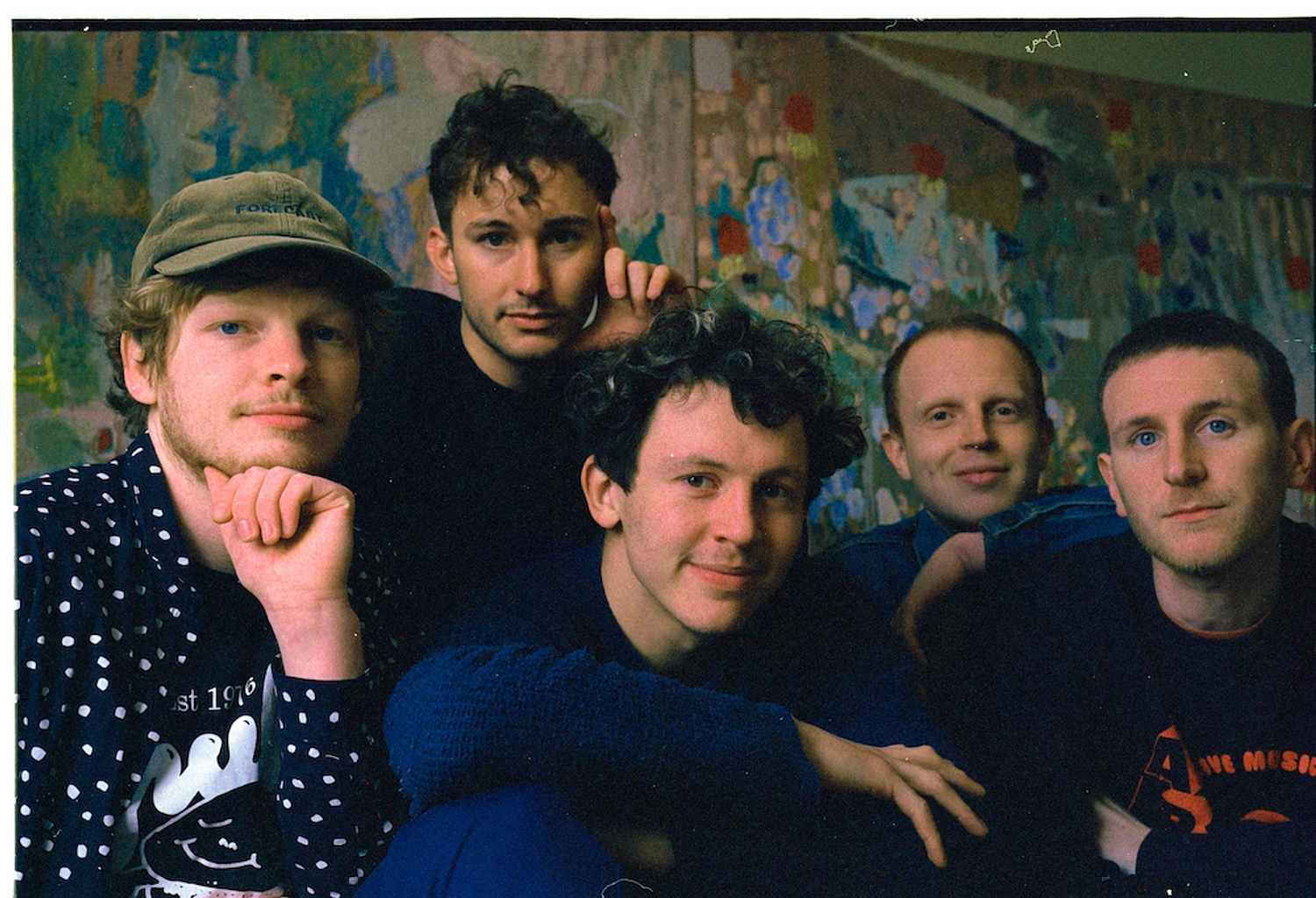
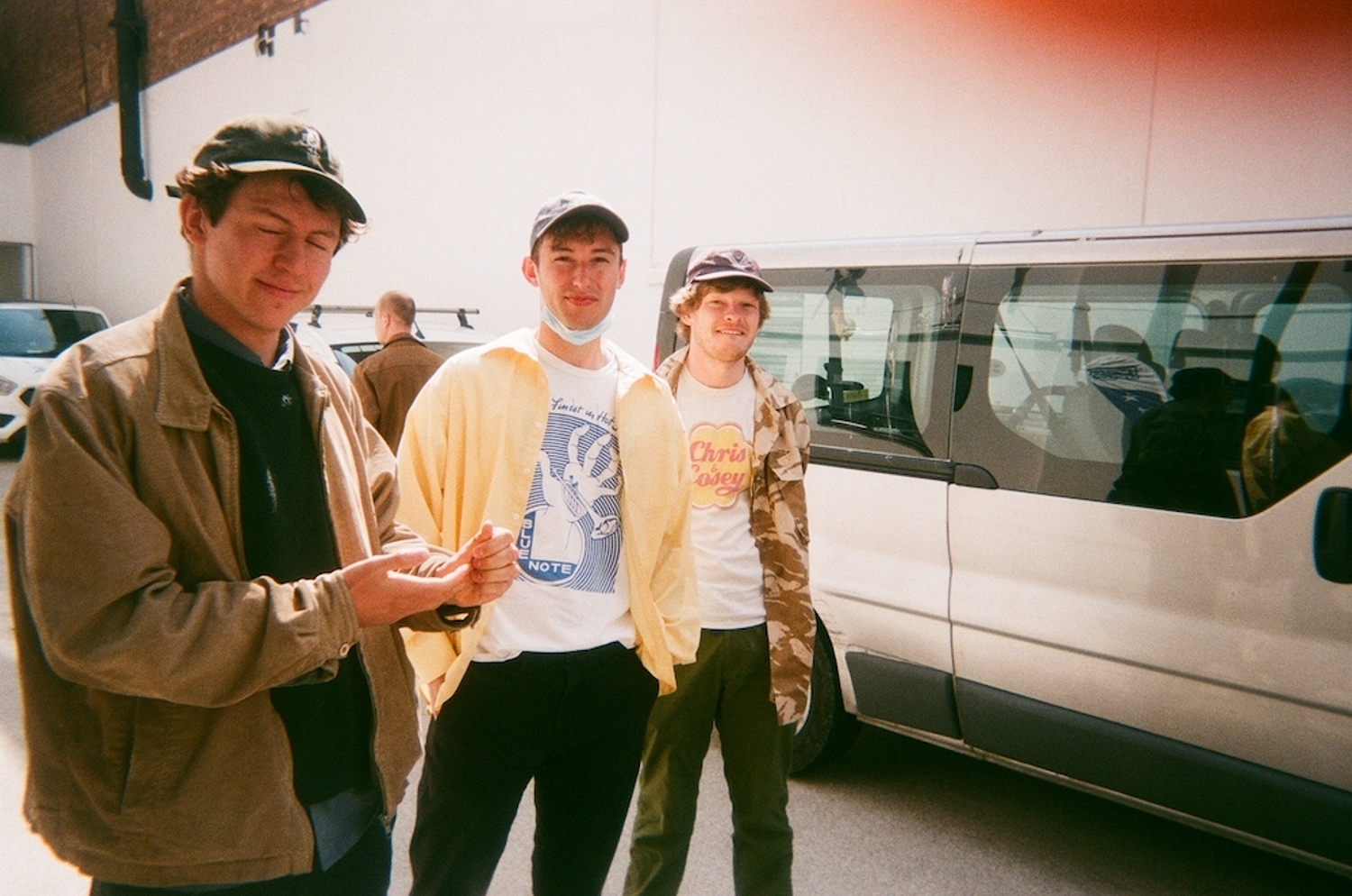
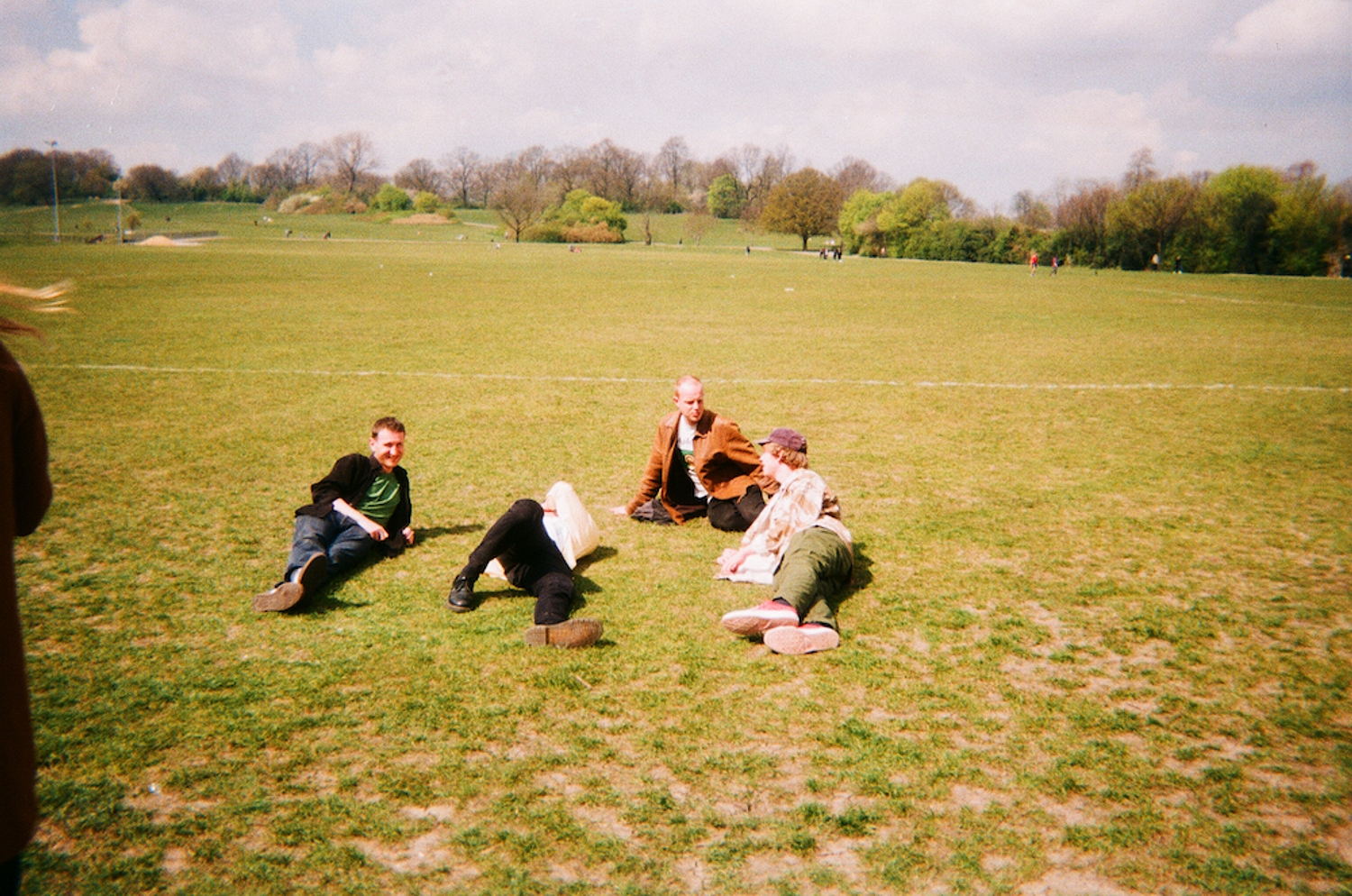
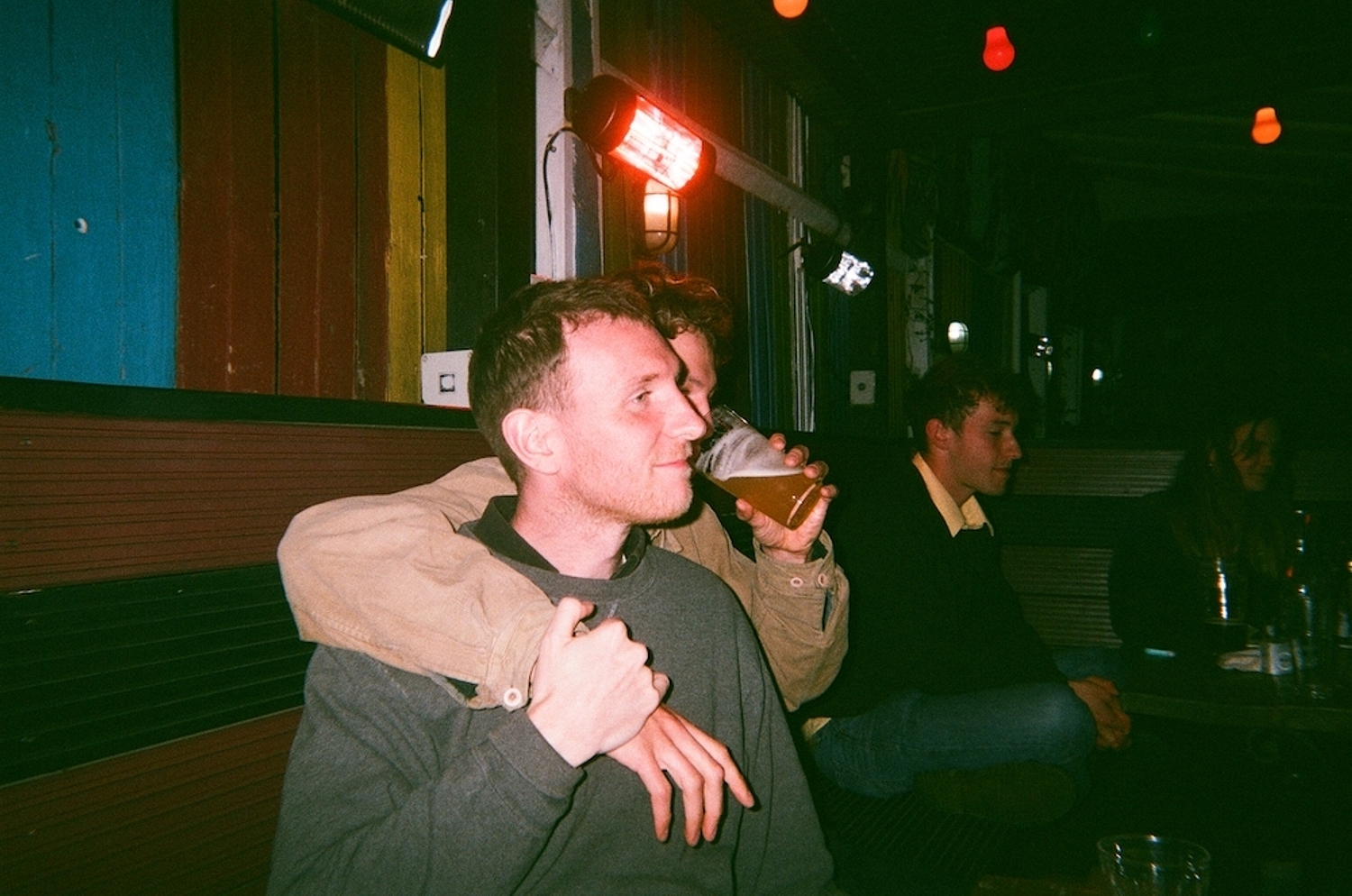
“We’re living in a reality that’s relatively synonymous with dystopia.”
— Louis Borlase
Little surprise, then, that ‘Bright Green Field’ has ended up sounding so ominous. You can hear it in the dissonant guitar crunches of ‘Peel St.’, the avant-garde structure of ‘2010’ and the relentless whelps of Ollie’s vocals: this is an album wrought with chaos.
Former BBC Radio 6 favourite ‘Houseplants’ (notably absent on the record) remains the closest the band have ever had to a three-minute pop song, but nothing much resembles that early single here. Instead, three seven-and-a-half minute maelstroms paint an image of the band’s current perspective of the world: a place full of harsh terrors.
“We’re living in a reality that’s relatively synonymous with dystopia,” begins Louis, describing the album’s deeper philosophical themes. “You walk around and see things built in the ‘60s that were part of this idea of a social utopia - designed with the understanding that we’ll be saved through technology and social movements. But everything has been undone. You can see it in the emptying of estates, and the encouragement to consume through advertising.”
It’s probably why the tracks that embrace a sense of doom on the album do so with such aplomb. Eight-minute leviathan ‘Boy Racers’ boasts the presence of a medieval instrument during its apocalyptic four-minute climax, which reaches a level of intensity that surpasses all else on the album. But it’s also “definitely the most coming-of-age song on the record,” says Ollie, somewhat unexpectedly.
If his claim is true, then it points to a rather questionable upbringing for the Squid boys, but considering their genesis as a funk covers band, it makes at least some sense. “It’s a bit like you’re being beamed up,” acknowledges Louis of the track’s otherworldly synth palettes and brain-melting drones, which they recall took “about 10 hours” to cook up in total. “That’s when you’ve reached puberty,” concurs Arthur.
‘Bright Green Field’ is by no means a gloomy record. As Ollie points out, “the relationship between utopia, dystopia and arcadia is actually quite blurred”. But the brightness of the album’s title remains at its most tangible in the band’s enduring live performances - which, after a period of incubation, seem to have transformed into a whole other beast.
Take their scintillating SXSW showcase this year. Tracks like ‘Paddling’ - never performed live prior - reveal a powerful sense of musicianship as the band face inward, assembled in star formation. It’s much less Slade than it sounds; with their inter-personal connection embodied through giddy call-and-response vocals and beaming grins, each player gels effortlessly to reveal the ecstatic depths of their work. Follow any one instrument and you’ll find a completely different story; embrace them in totality and you’ll find something greater than the sum of its parts.
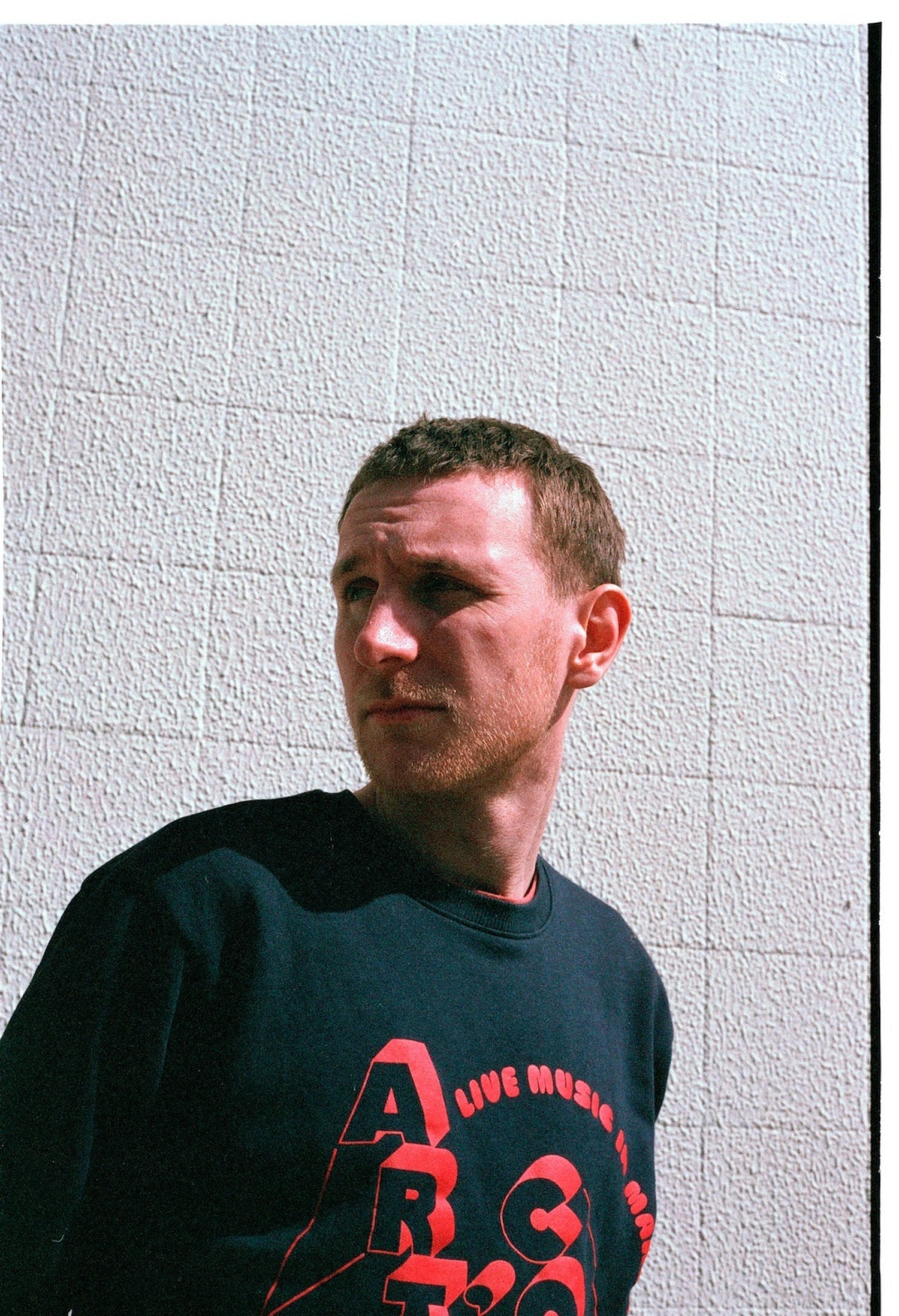
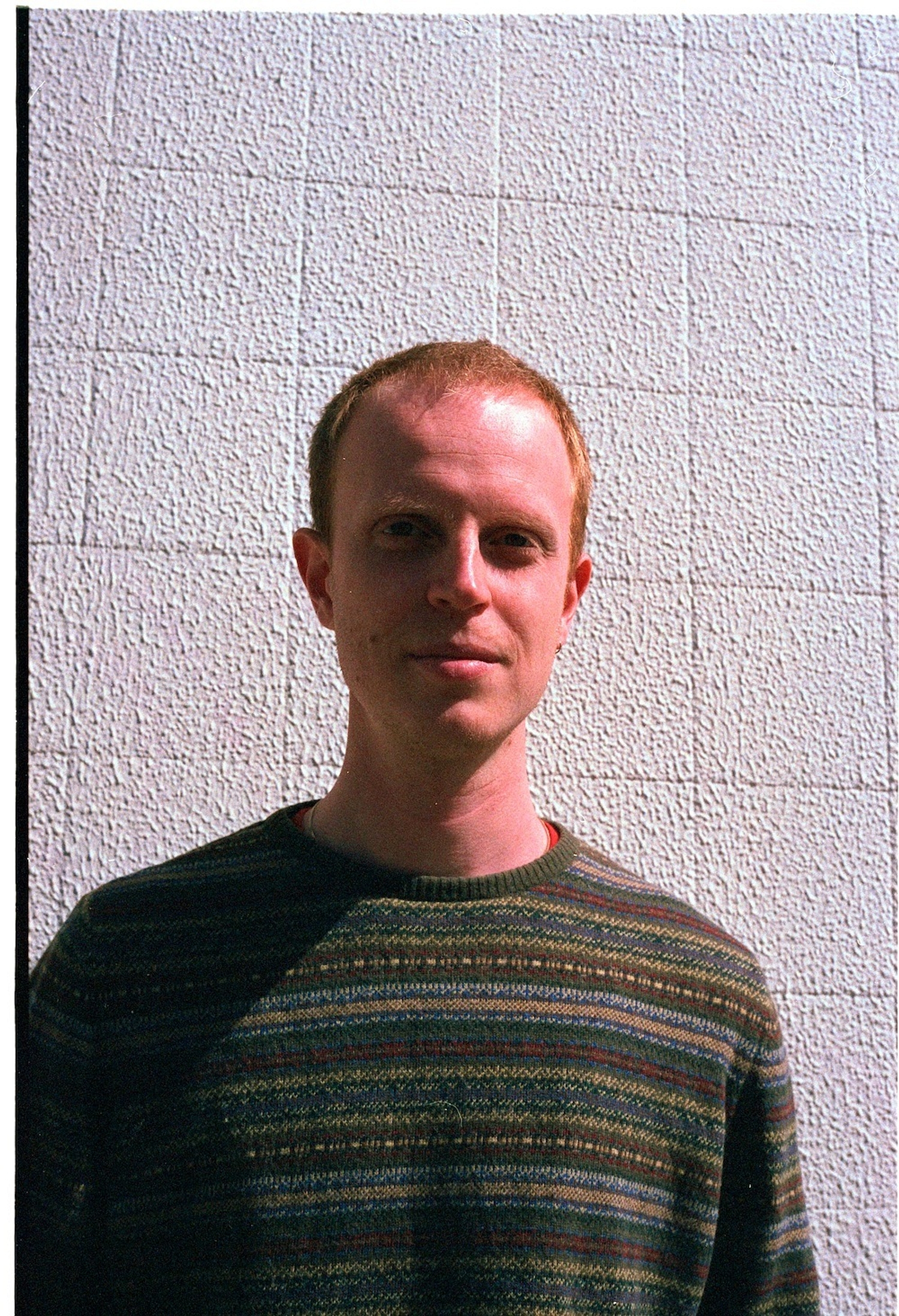
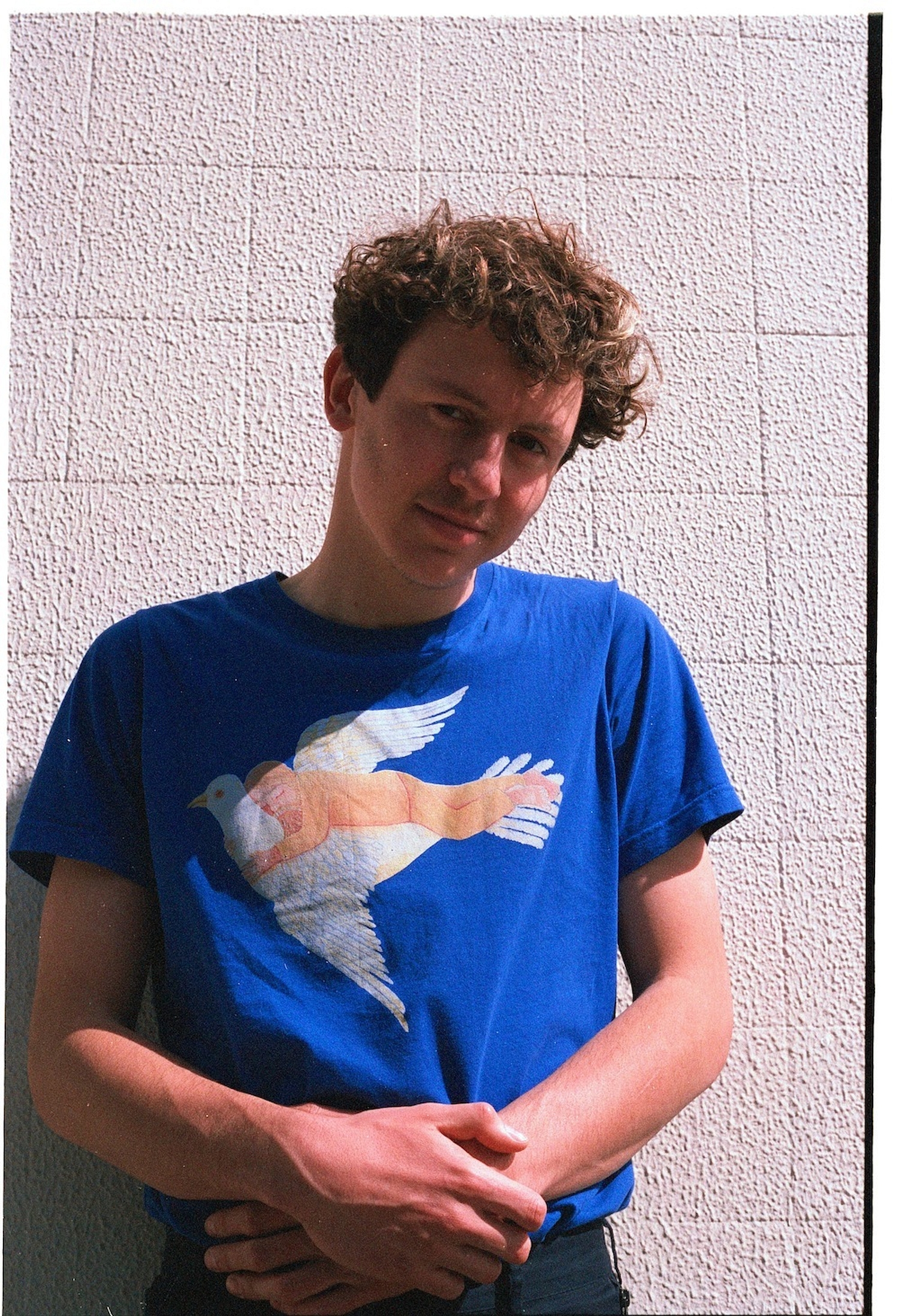
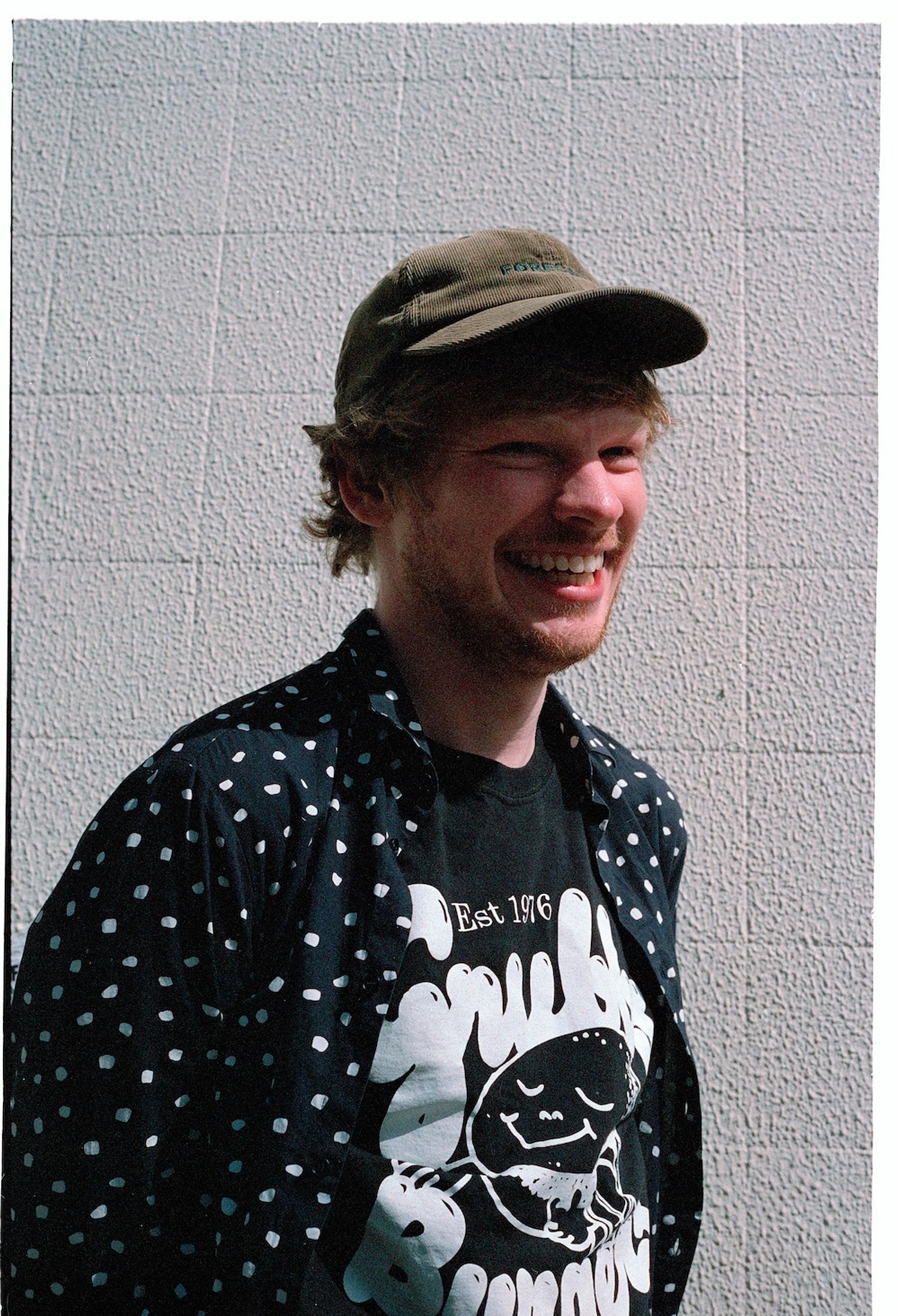
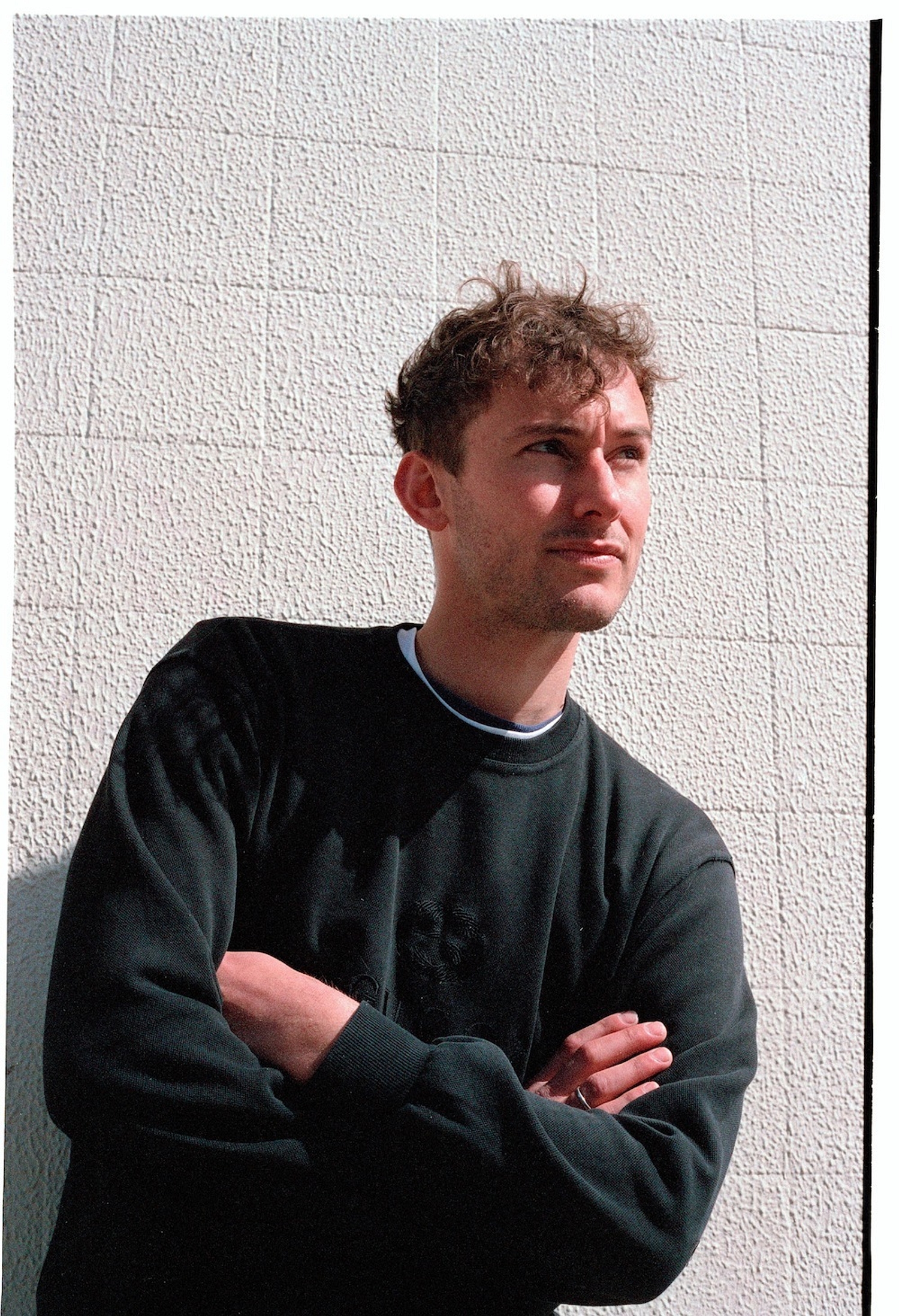
“I was expecting [the studio] to be more like the episode of Peep Show where they record the Honda advert.”
— Ollie Judge
Despite the band’s affable sense of unity, naming the album was much less straightforward - a “paradox” that the band are only too quick to admit themselves. “We had this list of about 40 names,” says Ollie, prompting bassist Laurie Nankivell to burst into laughter. “They were all shit.”
The abandoned ideas range from the benign to the bizarre: ‘Data Glove’, ‘Log Command’ and ‘Walkie Talkie’ all went on the back burner. “We had ‘Tunnel Boring’,” continues Ollie. “And then ‘Boring Tunnel’ as well.”
What they settled for, however, reflects the inner workings of the band itself - it’s an imaginary place where minds figuratively meet, reveals Laurie. “We juxtaposed that idea with the image of the opposite of a city - somewhere bright and artificial,” he continues. The resulting ‘Bright Green Field’, then, is a utopian ideal undermined by the album’s computer-generated cover artwork.
And if the aforementioned ‘Boy Racers’ evokes images of the Fast and the Furious films in its lyrics (“It’s about growing up with macho boy racers around you,” affirms Ollie), then the record’s lead single ‘Narrator’ alludes to the opposite. The track was inspired by Ollie’s experience watching “Lynchian” Chinese art film ‘Long Day’s Journey Into Night’ in the cinema by himself - a more seminal outing than he had anticipated.
“I booked tickets for me and my girlfriend,” he says. “But then her grandad passed away, so I was sat in the middle of the cinema, alone, watching this really weird film that has no plot, really. There’s this very long 3D sequence at the end, which was absolutely incredible, but I came out feeling really confused. You’ve got to do the work to figure out what it meant - which is a nice way to go about writing songs, as well, I think.”
It’s obviously an idea that stuck, because the band later sent off their music to a lab in East Asia after learning of a Japanese neuroscientist who had created an AI algorithm to decode “the mind’s eye”. The method requires the use of an fMRI scanner to create images based on what people are thinking. “We wanted to know whether we might be able to see an image of someone’s thoughts whilst they listened to the album,” the band explained in a press release - and though it sounds like an ominous statement, the idea was more Damien Hirst than Dr Frankenstein.
“It was Ollie’s birthday, and we were sat at the pub,” recalls Louis of the fledgling concept. There, the band conspired to send images relating to specific musical moments on the album, including high rise buildings, burning cars, and a picture of Louis Theroux, to professor Yukiyasu Kamitani, who would show them to his subjects while playing snippets of the band’s music. “He’s a really nice mad scientist,” Louis concludes of the adventure. “The scans he sent back became elements of the artwork, like the grass on the cover.”
These images, of course, are exactly what makes the finished product look so uncanny. The album art is full of familiar objects warped into something alien: a transition not unlike the band’s own across recent years. “There’s one that came back looking like the Eastenders river image,” says Ollie. “But then the one for ‘Paddling’ looks like Boba Fett’s spaceship from Star Wars.”
Speculative thinking and technological innovation are now at the crux of what Squid do. This is, after all, an album campaign that includes everything from 3D environment rendering in the video for ‘Narrator’ to the band’s website being transformed into a Google Earth randomizer. But the future, it seems, is equally mind-boggling.
“You’ll be able to see the rays of 5G going into your brain soon,” offers Ollie, deadpan. So when the city is communicating via hologram phones, and driving around in wind-powered cars, will the band be here to reckon with it?
“We’ll be the same as ever, innit?” says Arthur, dashing Laurie’s hopes that we might have reached another dimension by then. “There’s definitely going to have to be some kind of tomfoolery to stop us.”
Whether we’re in some fearsome new reality or not, then, at least we’ll have a fitting soundtrack.
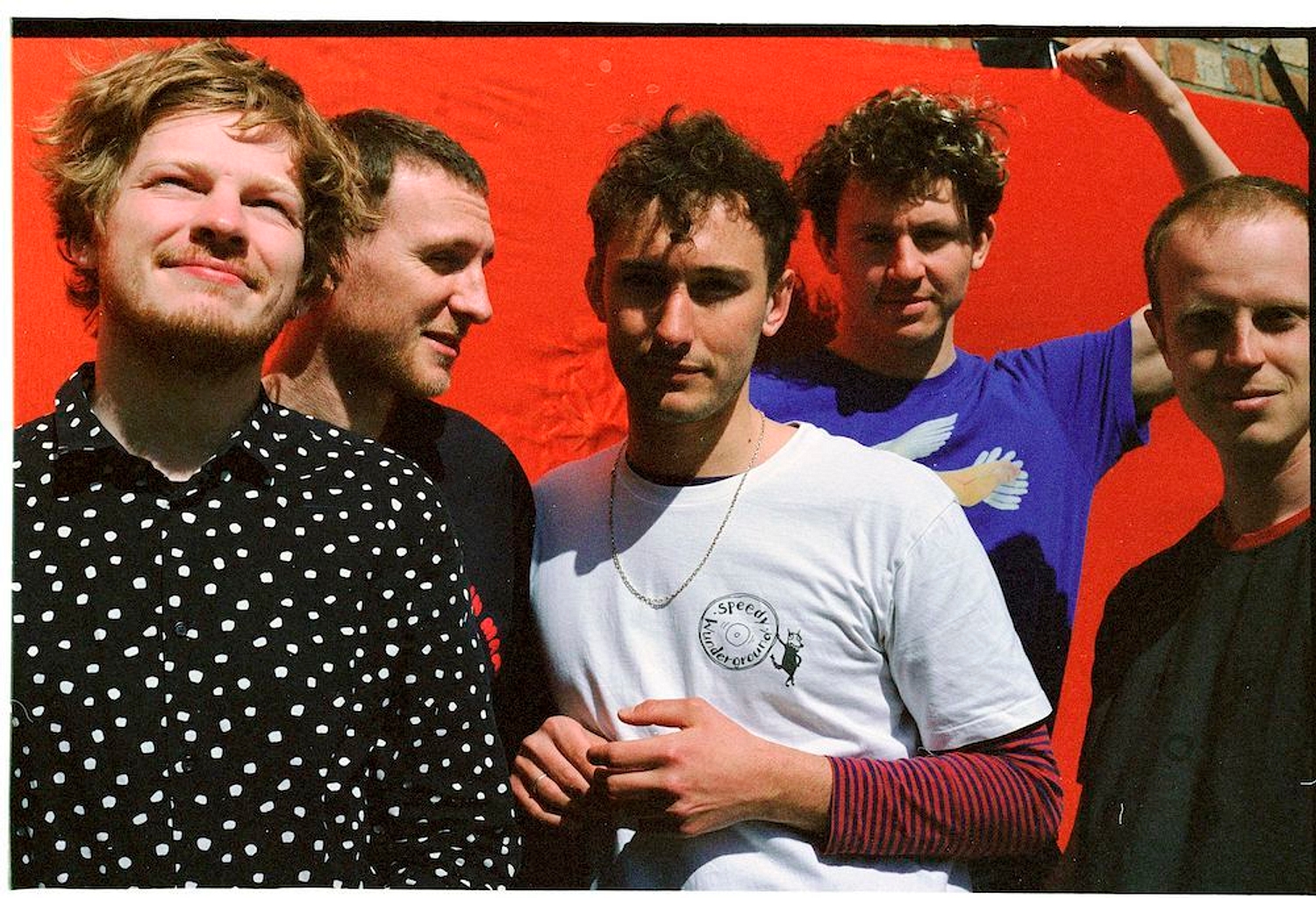
‘Bright Green Field’ is out now via Warp.
Read More
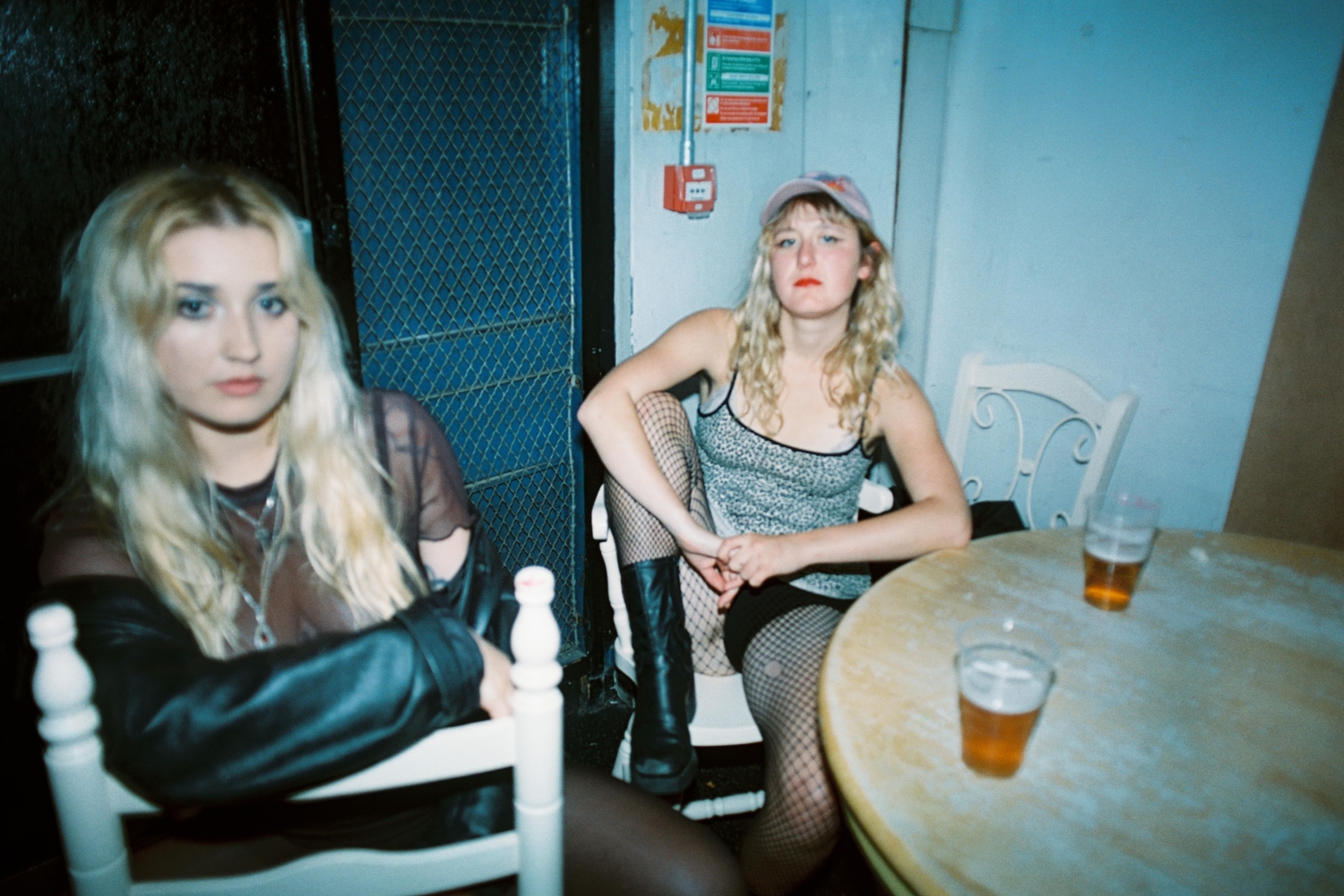
Wide Awake announce Lambrini Girls, Dry Cleaning, yeule and more
The Brixton day fest will welcome King Gizzard and the Lizard Wizard as this year's headliners.
1st February 2024, 12:18pm
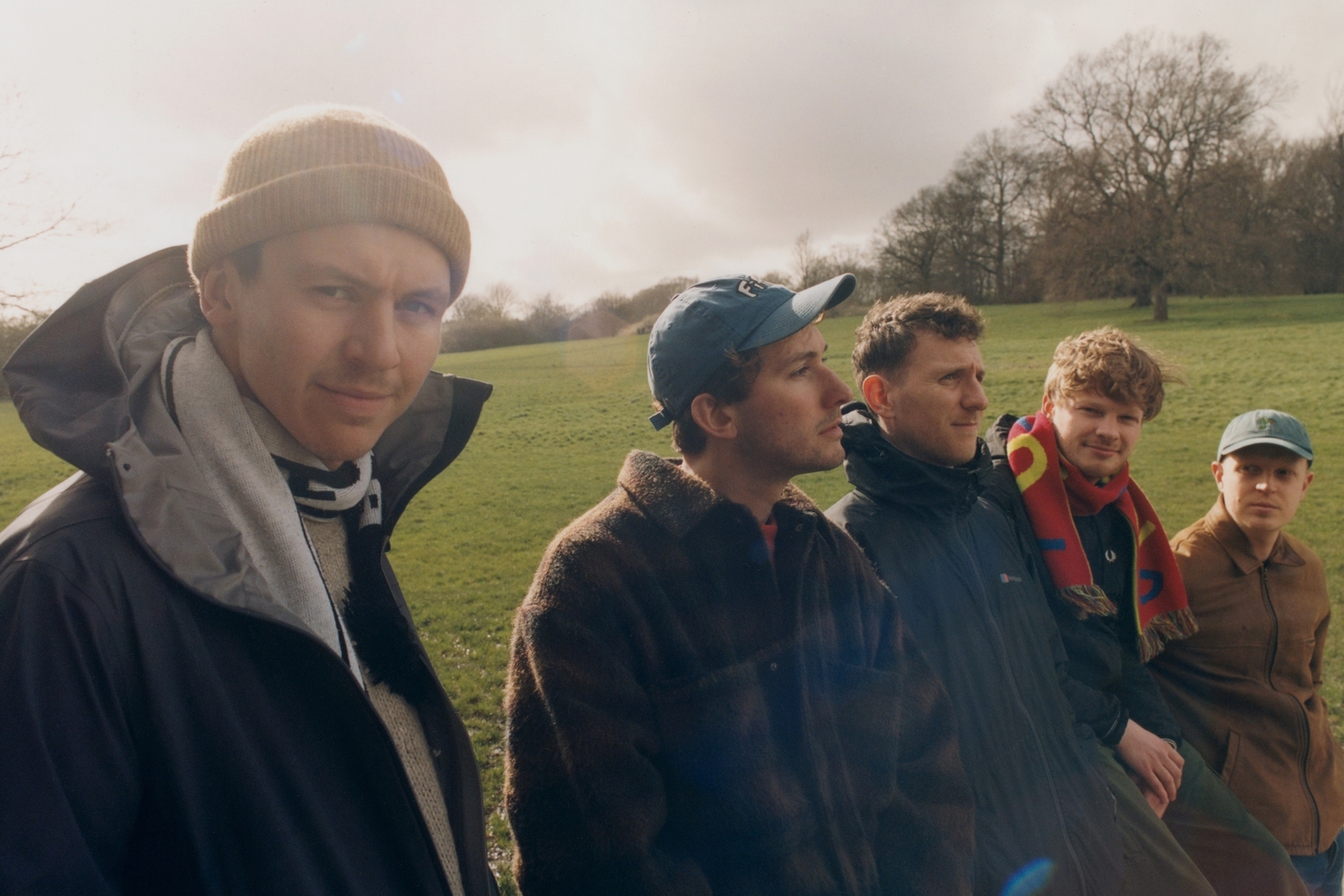
Squid offer up recorded version of live favourite ‘Fugue (Bin Song)’
24th January 2024, 3:55pm
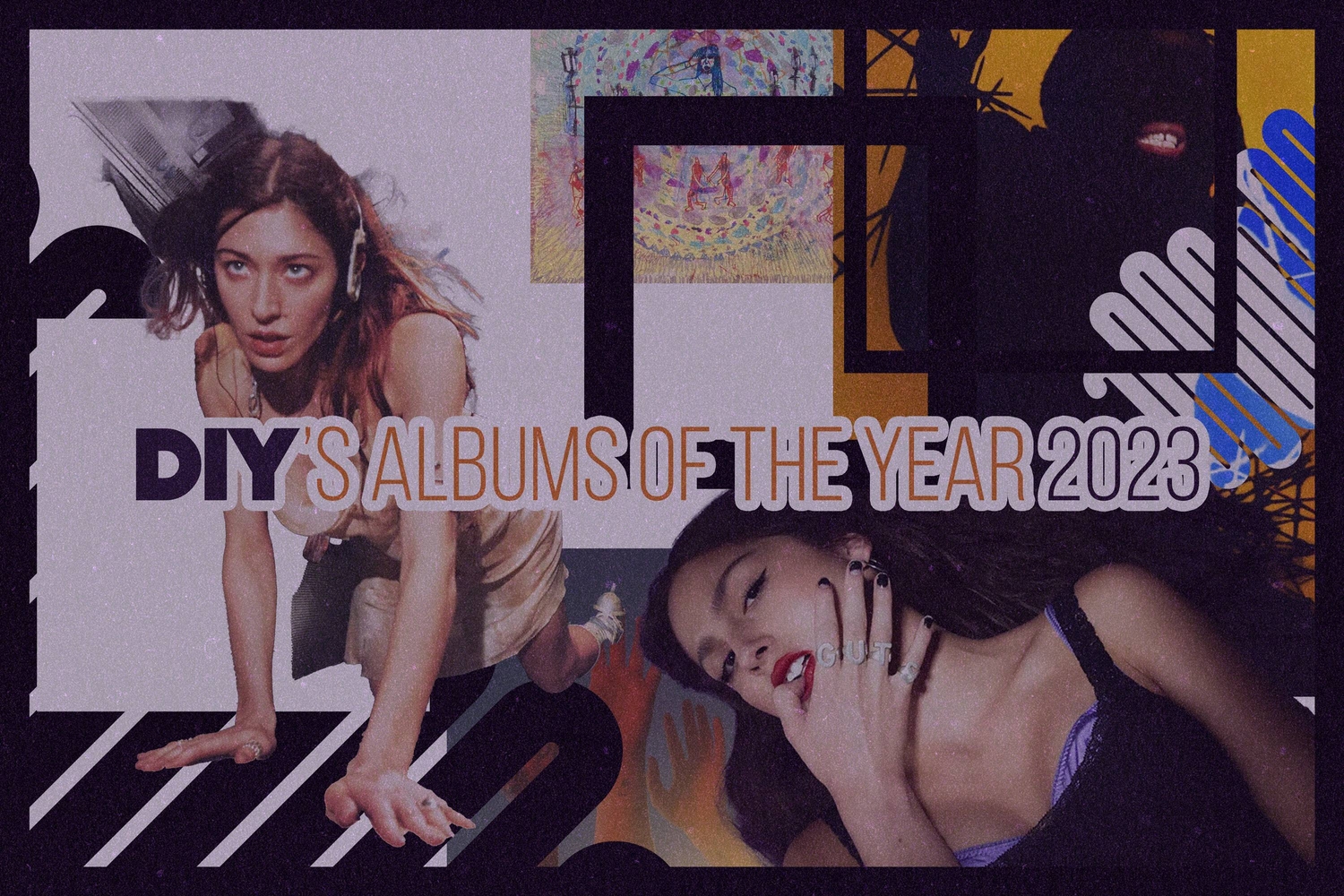
DIY’s Albums of the Year 2023
It's safe to say that it's been a stellar twelve months on the musical front, but what have DIY's writers had on repeat?
7th December 2023, 6:00pm
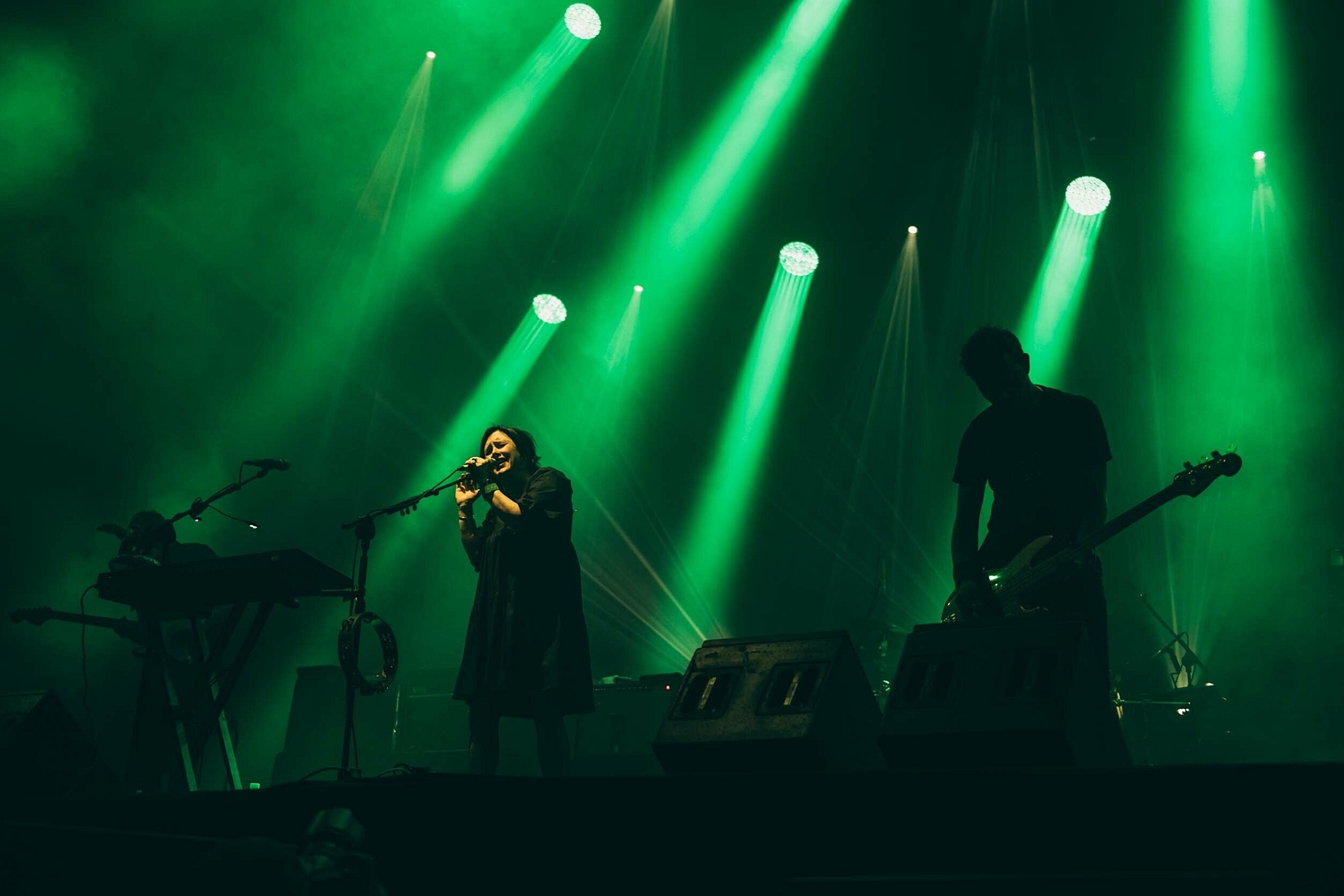
Slowdive, Sevdaliza, Modeselektor and more added to Wide Awake 2024 lineup
They'll join the previously-confirmed headliners King Gizzard & The Lizard Wizard and Young Fathers in South London next summer.
5th December 2023, 12:26pm
With Bob Vylan, St Vincent, girl in red, Lizzy McAlpine and more.
